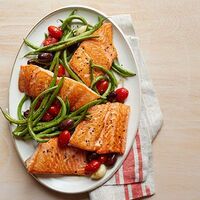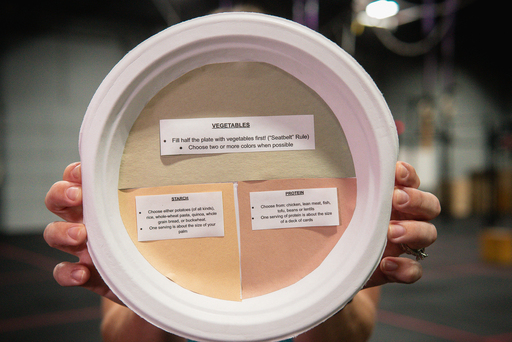


The heart is a remarkable organ that works tirelessly to keep us alive. It’s our responsibility to take care of it by making conscious choices in our diet and lifestyle. Heart disease remains one of the leading causes of death worldwide, but the good news is that many risk factors for heart disease can be managed or even prevented through proper nutrition and dietary habits. In this blog, we’ll explore the science-backed principles of nutrition for heart health, emphasizing the foods and habits that promote cardiovascular well-being.
Understanding Heart Health
Before delving into the specifics of nutrition for heart health, it’s essential to understand the basics. Cardiovascular health encompasses a range of factors that determine how well your heart and blood vessels function. Key components include:
- Cholesterol Levels: High levels of low-density lipoprotein (LDL) cholesterol can lead to plaque buildup in arteries, increasing the risk of atherosclerosis.
- Blood Pressure: Hypertension (high blood pressure) strains the heart and blood vessels, increasing the risk of heart disease and stroke.
- Blood Sugar Control: Poor blood sugar management, often associated with diabetes, can damage blood vessels and increase heart disease risk.
- Inflammation: Chronic inflammation can contribute to the development of atherosclerosis and other cardiovascular problems.
- Weight Management: Maintaining a healthy weight is crucial for heart health as obesity is a significant risk factor for heart disease.
Nutrition for Heart Health
A heart-healthy diet is not about deprivation but about making wise choices. Here’s a comprehensive guide to foods and dietary habits that promote cardiovascular health:
- Choose Healthy Fats:
- Opt for unsaturated fats, like those found in olive oil, avocados, and fatty fish (salmon, mackerel, sardines). These fats help lower LDL cholesterol.
- Minimize saturated and trans fats found in red meat, full-fat dairy, and processed foods. These can raise LDL cholesterol and increase heart disease risk.
- Prioritize Fiber-Rich Foods:
- Fruits, vegetables, whole grains, and legumes are excellent sources of dietary fiber, which can help lower LDL cholesterol and control blood sugar levels.
- Include Omega-3 Fatty Acids:
- Fatty fish, flaxseeds, and walnuts are rich in omega-3 fatty acids, which can reduce inflammation and lower the risk of heart disease.
- Reduce Sodium Intake:
- Excessive sodium can raise blood pressure. Avoid processed and restaurant foods, and use herbs and spices to flavor your meals instead.
- Limit Added Sugars:
- Sugary beverages and foods can lead to weight gain and blood sugar spikes. Opt for natural sweeteners like honey or fruit to satisfy your sweet tooth.
- Eat a Rainbow:
- A diverse range of fruits and vegetables ensures a variety of vitamins, minerals, and antioxidants that support overall health.
- Portion Control:
- Be mindful of portion sizes to maintain a healthy weight and prevent overeating.
- Whole Grains:
- Replace refined grains with whole grains like brown rice, quinoa, and whole wheat, which are rich in fiber and nutrients.
- Nuts and Seeds:
- Almonds, walnuts, chia seeds, and flaxseeds are excellent choices for heart-healthy snacking. They provide healthy fats, fiber, and antioxidants.
- Lean Protein:
- Choose lean sources of protein, such as skinless poultry, beans, lentils, and tofu, to reduce saturated fat intake.
- Hydration:
- Staying hydrated is essential for overall health. Opt for water, herbal teas, and limit sugary or high-caffeine beverages.
- Alcohol in Moderation:
- If you consume alcohol, do so in moderation. Red wine, in particular, may have some heart-protective benefits when consumed in moderation.
- Meal Preparation:
- Preparing meals at home allows you to control ingredients and portion sizes, making it easier to follow a heart-healthy diet.
- Mindful Eating:
- Pay attention to what you eat and savor each bite. Mindful eating can help prevent overeating and improve digestion.
Embracing a heart-healthy diet is a powerful step towards reducing your risk of heart disease. However, it can be overwhelming to navigate dietary changes on your own. That’s where the guidance of a certified nutrition coach can be invaluable. At Xtra Mile Fitness, our highly trained coaches are equipped with the knowledge and expertise to tailor a nutrition plan specifically for your needs.
Here’s what you can gain from working with a certified nutrition coach:
- Personalized Guidance: Nutrition coaches consider your unique health profile, preferences, and goals to create a customized plan that works for you.
- Accountability: Regular check-ins with a coach can help you stay on track and motivated to make long-lasting dietary changes.
- Education: Coaches provide you with in-depth knowledge about the science of nutrition, empowering you to make informed choices.
- Adaptability: As your needs evolve, your nutrition coach can adjust your plan accordingly, ensuring your diet remains aligned with your health goals.
- Support and Encouragement: Making dietary changes can be challenging, but with the support of a coach, you’ll have someone cheering you on every step of the way.
Schedule a FREE consultation today to learn how how our team can help you!
Nutrition for heart health isn’t just about preventing disease; it’s about optimizing your overall well-being. By incorporating the principles of a heart-healthy diet, you’ll not only reduce the risk of heart disease but also enjoy increased energy, improved mood, and better longevity.
Make the commitment to nourish your heart through your dietary choices, and consider meeting with one of our highly trained certified nutrition coaches at Xtra Mile Fitness. They can provide the personalized guidance and support you need to embark on a journey toward lifelong heart health. Your heart deserves nothing less than the best, and together, we can go the extra mile for a healthier, happier you.
